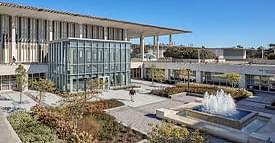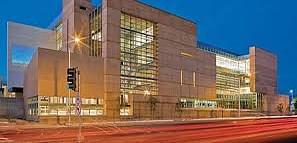Bachelor of Science [B.S] (Mechanical Engineering)
Field of Study:
₹10 L/Yr
Tuition Fees
| Year | 1st Year Fees |
|---|---|
| Tuition Fees | ₹1000342 (USD 11640) |
Along with a basis in engineering fundamentals, the program gives students the opportunity to learn about robotics, controls, machine design, and numerical modeling. With curriculum tracks in either robotics, propulsion or energy, students can focus on uninhabited aerial vehicles, planetary rovers and autonomous space vehicles, design propulsion systems like jet engines or develop new energy conversion systems.
Mechanical Engineering became a degree offering in Fall 2007. When designing this degree program our faculty wanted to ensure that we created a Mechanical Engineering degree that embraced Embry-Riddle?s mission and recognized expertise in aerospace.
Aerospace platforms, whether atmosphere or space based, require skills from a team of engineers that include Aerospace, Electrical, Computer, and, of course, Mechanical Engineering. Given this, our ME degree stays within that focus of the aerospace platform with the three primary options of robotics, propulsion and energy.
The freshman year in Mechanical Engineering is common to the Aerospace Engineering degree program. The second year in Mechanical Engineering builds fundamental skills in math and physics while introducing students to Engineering Mechanics and the Thermal Sciences. During the second semester of their sophomore year, Mechanical Engineering students in Embry-Riddle?s program in Prescott will start taking courses aligned within the focus areas of robotics, propulsion or energy.
The robotics option emphasizes the design and analysis of autonomous vehicles that include uninhabited aerial vehicles (UAVs), autonomous space vehicles, and planetary rovers. The propulsion option emphasizes the thermal sciences and design and analysis of turbomachinery. Jet aircraft engines are the primary area of depth but piston and rocket propulsion are also studied. The energy option emphasizes the design of renewable energy systems. During the senior year, students will gain additional depth in their options and take capstone courses in designing an aerospace platform.
Aerospace platforms are designed in teams and with that we provide interdisciplinary opportunities centered around our ME students. Senior ME students have the opportunity to choose between five capstone sequences as a culminating event focused on teams, integration, and synthesis of four years of education.
Mechanical engineers can choose capstones sequences that include:
- Robotics sequence centered on UAVs and rovers
- Astronautics sequence centered on spacecraft
- Aeronautics sequence centered on aircraft
- Propulsion sequence centered on jet aircraft engines.
- Energy sequence centered on alternative energy systems
TOP Scholarships
| Scholarship name | Award amount | Eligibility |
|---|---|---|
| - | - | - |
| - | - | - |
| - | - | - |
Key Resources for Your Study Abroad Journey
Scholarship Grants & Financial Aids
| Name | Scholarship Per Student | Level of Study | Type | |
|---|---|---|---|---|
| Debesh Kamal Scholarship | Scholarship per student₹ 1.2 L/Yr$1,385 | Level Of StudyBachelor | TypeMerit-Based | |
| Ritchie-Jennings Memorial Scholarship Program | Scholarship per studentVariable Amount | Level Of StudyBachelor | TypeMerit-Based | |
| Innovation in Education Scholarship - La Tutors 123 | Scholarship per student₹ 42,970/Yr$500 | Level Of StudyBachelor | TypeMerit-Based | |
| Gunvant & Bharati Parekh College Scholarship | Scholarship per student₹ 85,940/Yr$1,000 | Level Of StudyBachelor | TypeMerit-Based | |
| Next Genius Scholarship | Scholarship per studentVariable Amount | Level Of StudyBachelor | TypeMerit-Based |
Similar Colleges


University at Albany


Northern State University


Abilene Christian University
.jpeg?h=143&mode=stretch)

Ohio Northern University


University of South Carolina


University of Akron


State University of New York Polytechnic Institute


University of New Mexico




























Comments